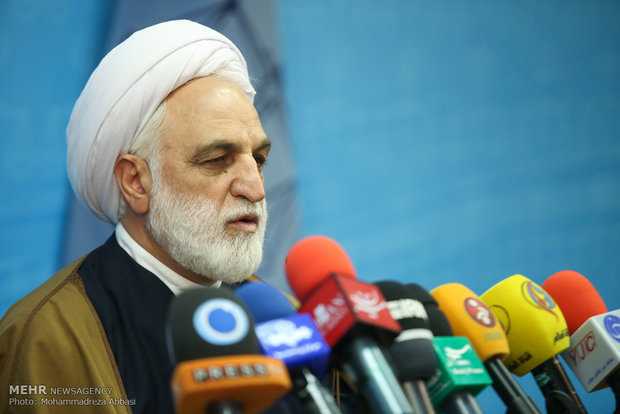Mr. Gholamhossein Mohseni Ejei who was speaking to the press possibly in his last conference in the fiscal year ending March 21, 2017, indirectly warned whom he believed were the beneficiaries of the Salary Bill Scandal that the Judiciary would follow the case and that the case had not been closed; “government officials should not feel that the case has been closed and they now would resume their illicit activities with a safe distance from the justice and the rule of law; rather, the Salary Bill Scandal will be a priority until the rights of the nation fully are vindicated and the perpetrators receive retribution in par with their corruption,” he emphasized.
Mohseni Ejei also addressed media which were closely associated with the Scandal and corruption in that it exposed and informed the media about the corruption and thus contributed positively to the Judiciary’s investigations; “the media could be a source of mental security through exposing the corruption and thus discouraging the corrupt individuals in their conduct damaging to the state and the nation,” he praised the media, “your conduct would restore and revive public trust upon the workings of the state.”
He then turned to his colleagues in some piece of advice; “judges should generally avoid a course which would lead them to a moral debacle: that they should not administer justice with injustice and award the tyranny and crime with verdicts which otherwise should be strictly reviewed by the higher courts,” Ejei recommended.
“The media on the other hand, should strictly seek truth from the ruling elite with commendable persistence; no case should be abandoned halfway through the investigation; such cases would not serve the community best as it should; the subject matter you address should be worthy enough to receive media coverage; the society should reap the full outcomes of your efforts in making the community transparent and responsible,” he suggested.
Ejei admitted that the media had a difficult job of facing huge hurdles and issues of discouraging effect on their career; “the media should criticize the system and warn it on its pitfalls; but no specific achievement should remain unnoticed; be fair on reporting on the state affairs, while exercise constraint in displaying the shortcomings,” he concluded.
SH/3933594

























Your Comment